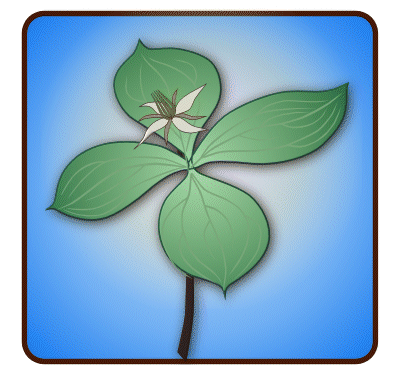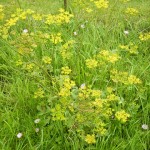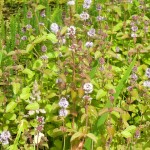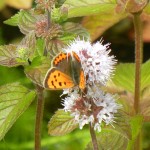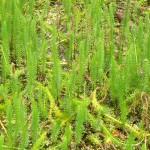The weather was dry but overcast and cool for the time of year. On the same Friday in 2010, the park was full of migrating swallows but this year there were only a few swooping around the young cattle. The wildlife verge across the exit road near the start of the parkland walks had its usual array of interesting plants including wild carrot with a dark red flower in the centre of each umbel and scentless mayweed with its thread-like leaves. In flower were white campion, agrimony, ragwort, rough chervil, marjoram and black medic whereas the hemlock was senescent. The entrance to the parkland had mature plants of wall barley grass and weld and common storksbill, knotgrass and autumn hawkbit were seen in the parkland.
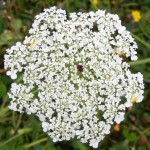
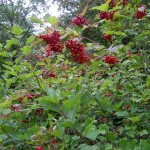
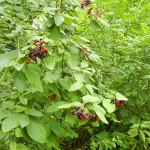
In the Pheasantry woodland, the guelder rose shrubs were carrying large numbers of their red, translucent fruits in contrast to the related wayfaring trees with their red and black berries. Sloes were abundant and colourful. The fruit of the cherry plum proved to be ripe. The perimeter brick and flint wall was carrying moss, lichens, male fern and wood sedge on a limited length. The honeyed scent of creeping thistle was remarked upon.
Back on the margins of the exit road, a few plants of wild parsnip were in flower together with both pink and white yarrow, cranesbill, teasel, stemless thistle and a small head of an Allium species.
A visit to the small, artificial pond in the gardens found that three butterfly species were present and attracted by the flowering water mint. The meadow brown had been seen elsewhere on the walk but not so the green-veined white and a pristine example of a small copper. The centre of the pond is dominated by marestail which is a flowering plant of still, limey, fresh water.
Thanks to my co-leaders Susan Twitchett and Chris Bucke and to Dot Lincoln who came for the walk and found herself keeping the records.
Colin Dibb, August, 2011
